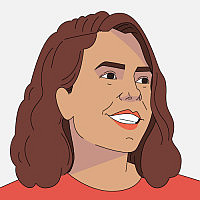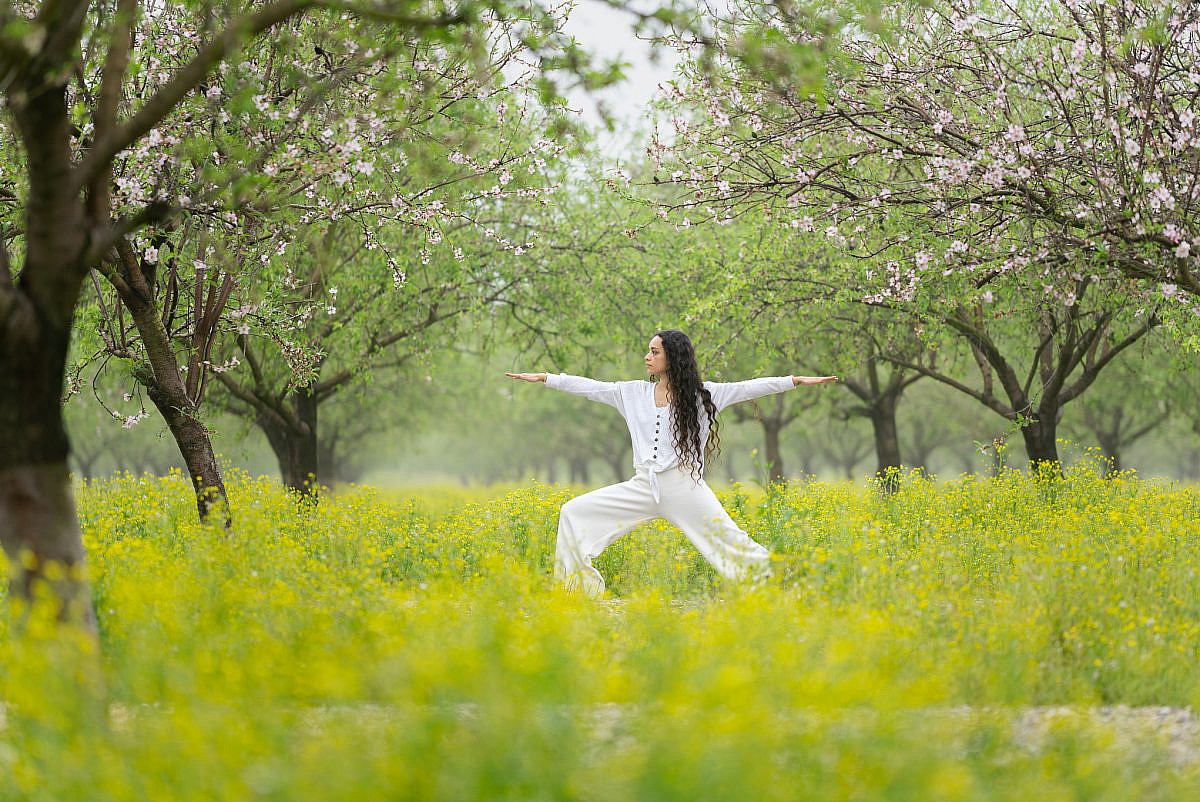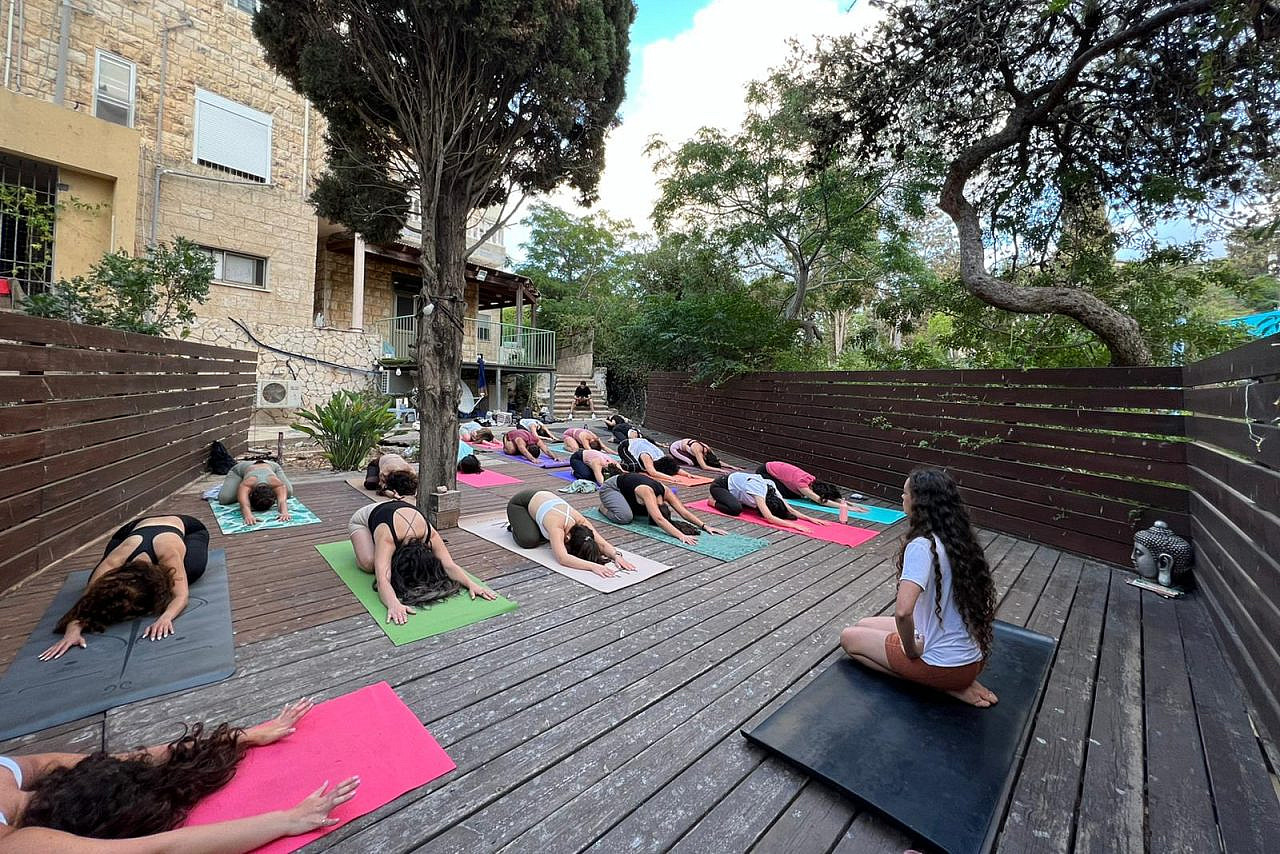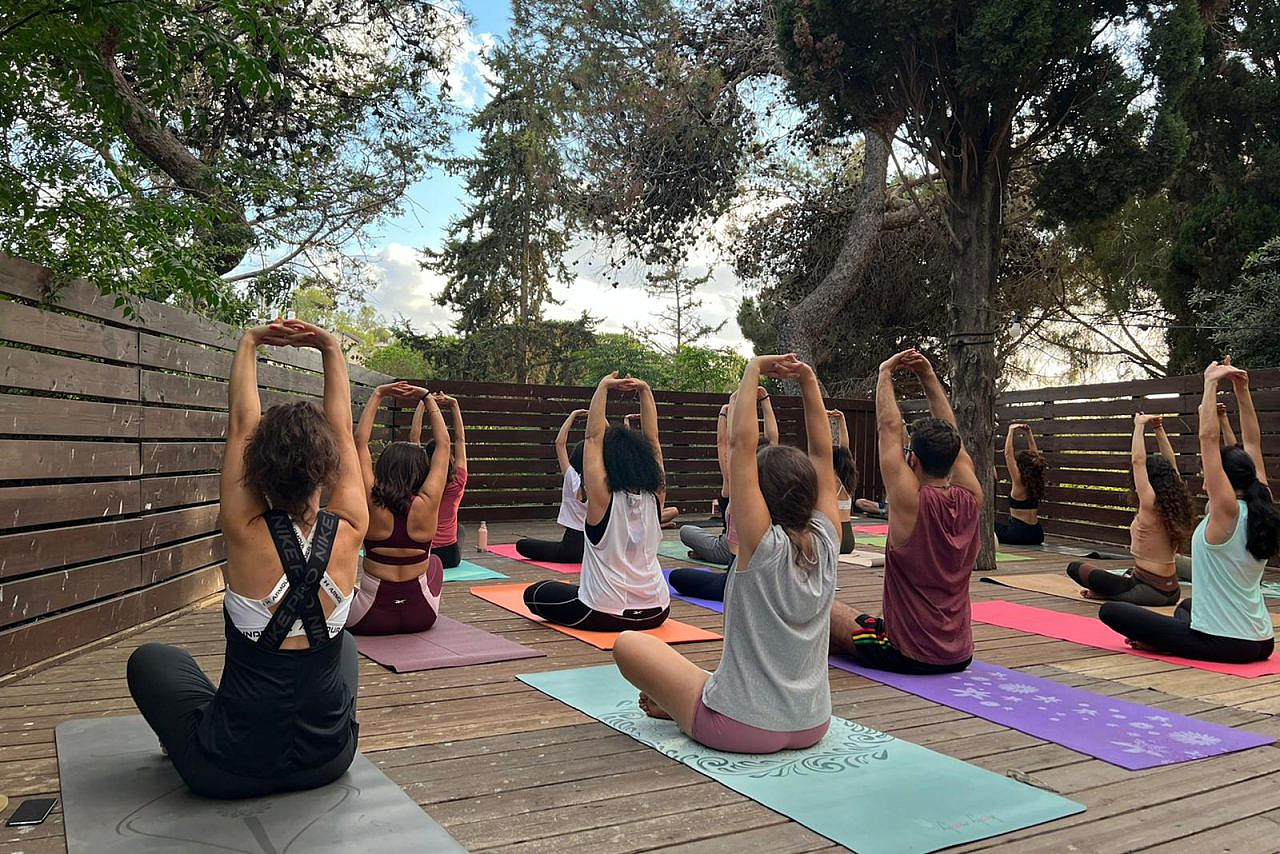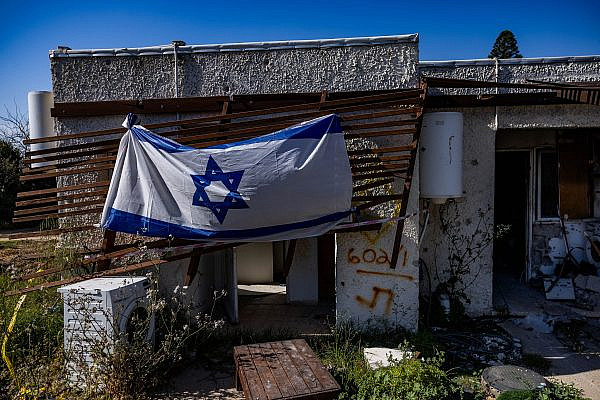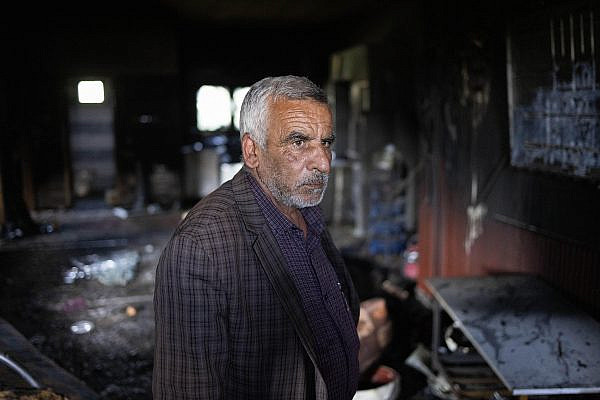When Maya Odeh first started practicing yoga, she struggled to find a space that resonated with her Palestinian identity. At Israeli yoga studios, she faced a lack of familiarity with her customs and traditions, and was subjected to the usual racism that Palestinians experience in predominantly Jewish-Israeli spaces. So she decided to create a yoga community of her own, specifically for Palestinians living in Israel.
She aimed to provide a class that would mirror their experiences, language, and background, fostering a sense of belonging and understanding of the reality of living under apartheid. “I am a being of service in my own language and to my people,” Odeh says.
For Odeh, who was born and raised in Haifa, becoming a yoga instructor was a gradual and inadvertent process. She started practicing yoga at home during her first year of university with the encouragement of her brother and his friend, and although reluctant at first, she eventually fell in love with it. Attending a yoga class with her brother solidified her passion. “I noticed the post-yoga feeling of lightness and I wanted everyone to experience it,” she recalls. “I’ve been practicing ever since.”
Odeh deepened her practice in Barcelona, after moving there in 2015 to pursue a degree, and realized there that teaching yoga was her calling. She wanted to share the comfort she found in yoga with others and teach in Arabic, as there were no Arabic-speaking yoga teachers in Haifa at the time. But returning to live in her homeland was a challenge for Odeh, who had moved abroad to seek, like many Palestinians, “an escape from the political situation here.”
“Being [in Barcelona] as a Palestinian was liberating,” she says. “I could express myself without fear of conflict or delegitimization. I spoke about what happened here during the 1948 Nakba without apprehension. There was complete acceptance of my Palestinian identity and the history of my people.”
She struggled to adjust upon her return, feeling like an outsider and experiencing difficulty with the Hebrew language and interacting with Israelis, specifically at yoga studios. Yet despite the hardships, for Odeh, Palestine is home, creating a cognitive dissonance that she continues to grapple with. “We normalize our reality and it is anything but normal,” she explains. “When I came back, I became hyper-aware of our reality, and felt at the margins of society.”
Moreover, she says, she felt uncomfortable at Israeli yoga studios due to the power dynamics and language used, including references to military service and criticisms of Palestinians. “They do not see that we have been living under occupation [inside Israel’s pre-1967 borders],” Odeh continues. “[They] want to live in a whitewashed world and pretend that everything is fine. For me, this attitude creates a lot of conflict which is why it is hard for me to be in Israeli yoga spaces. It’s very surreal, hypocritical and suffocating.”
Yet these experiences also spurred Odeh to establish the kind of space for yoga practice that she wanted to see. “I had never been in an environment that understood what it means to be a Palestinian woman amid our reality, so I created it,” she says, reflecting on her own teaching practice.
“It came out of need: to walk into a class and speak in Arabic to Palestinian practitioners, to celebrate the same holidays, to know what we are going through as a collective,” Odeh continues. “To me, that was very empowering, [and a means to] reclaiming our language and reclaiming our space. Palestinians living in Israel do not have a lot of spaces where we can reclaim our relationship to our language, reclaim ourselves as a community and thrive.”
Beyond the mat
India, the birthplace of yoga, is a dream destination for those enthusiastic about the practice. Odeh’s journey took her to India in 2019, where she gained deeper insight into yoga as a lifestyle. She recognized how the Western world had commercialized and oversimplified yoga, focusing on the physical aspects while neglecting its true essence. She became more aware of cultural appropriation and strove to honor the traditions of yoga. “It was very eye-opening,” she explains. “You start paying attention to the nuances. You have to be aware that you are dealing with humans and their energy.”
For Odeh, yoga extends beyond the mat, encompassing all aspects of life. “I became more respectful of the tradition and practice of yoga,” she says. “For example, in Savasana [the final rest pose in a yoga class, also called corpse pose] we ask students to rest their heads toward the teacher, to be closer, physically and spiritually. Also, I do not use Namaste because it means ‘greetings to you,’ but it doesn’t mean ‘the light in me sees the light in you,’ as we see in inaccurate quotes online.
“There’s [also] something beautiful about bringing our own language into the practice of yoga,” Odeh continues. “I love saying in Arabic, ‘shukran’ (thank you) at the end of the class. I also do not like the use of beads as accessories or decorations; it is very sacred in yoga traditions as it is in most religions, and I do not see wearing them as a necklace as appropriate. You have to think of yoga as more than the duration of your practice on the mat, how to carry all that you learned on the mat and practice it in your life.”
When the COVID-19 pandemic struck, a few months after she started officially teaching yoga in a studio, Odeh transitioned to online teaching. Her goal was to make yoga accessible and comfortable for Palestinians and Arabs, providing them with a source to improve their lives in their own language. Sharing her practice online became essential to her, stemming from the lack of Arabic yoga content she encountered when she first started practicing.
Odeh’s online efforts have been well received by Palestinians in Israel and other Arab practitioners around the world. The community has grown slowly but steadily, with more people practicing yoga and embracing its benefits. Odeh aims to create a community of conscious individuals who use yoga for healing, mindfulness, and compassion, both for themselves and those around them.
“I wanted to share free, Arabic-language content,” she says, recalling being contacted by a woman in Kuwait who requested to use her Arabic translation of a sacred yogic script. “I felt so happy that this script is available for Arabic-speaking audiences now, because I remember how I couldn’t find it in Arabic, and now it is available.”
In a violent reality
As a Palestinian woman living and doing yoga under apartheid, Odeh finds solace and grounding in the practice. Yoga serves as a therapeutic tool to regulate her nervous system and calm her mind amid the tense and often violent reality around her. Nonetheless, when violence escalates, she believes it is important to be present on the streets and to take action in ways that align with yoga principles.
For example, in the past few years, Odeh and several Palestinian yoga instructors have organized donation-based yoga classes on International Yoga Day to raise funds for the Palestinian Children Relief Fund (PCRF), and have so far raised around $3,500. “This was our way to give back and be of support to our community, especially in times of intense violence and Israeli attacks on Gaza,” she says. It is a kind of yoga called Karma yoga, which is the yoga of duty and taking action without waiting for the result.
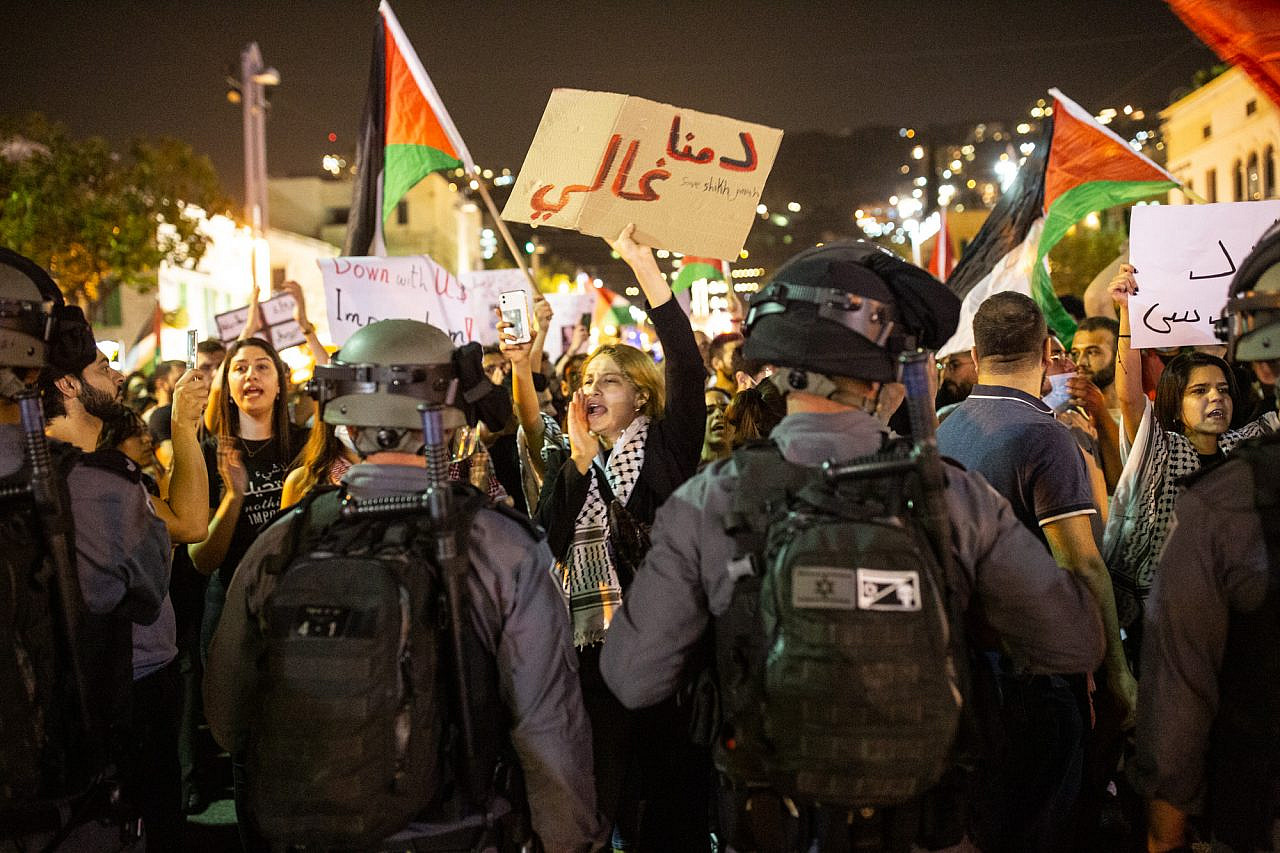
Practicing yoga within the oppression that surrounds her is multilayered, Odeh says. “While living here in this reality which is always tense and violent, [yoga] is my way to calm and reclaim my internal world when the external world is in shambles. I do not know what I would have done if I was not practicing yoga. I think I would have lost my mind.”
Yet Odeh also stresses that when the situation on the ground is fraught, it is challenging for her to find refuge in yoga. “In one way, for me, it is a very grounding tool. But during violent times, for example, yoga does not suffice. There are a million ways to practice yoga, not just physically or on the mat.”
‘It’s a practice and a journey’
Odeh is also seeking to counter the Western influence on yoga, which has led to its commercialization and oversimplification. This has made yoga inaccessible to many and created the perception that it is only for a specific section of society — mainly rich and white individuals. This monopolization of yoga, Odeh cautions, has made people believe they have to be flexible or thin in the first place to be able to practice yoga. “That is the image we get, but the truth is yoga is for everybody,” she says. “It could be an hour of meditation or movement practice, you can practice it on a chair or bed, and it meets you where you are.”
Part of what she’s aiming to counteract, Odeh explains, is the impulse she sees in many practitioners to immediately rush to do the most extreme, performative poses — often for social media. “We do not do yoga to do headstands and display the most flexible moves; that is not the point, but unfortunately this is the way it is being used these days,” she says. “And that is where I draw the line in my practice and during my lessons: let yoga meet you where you are now, and don’t force your body into anything uncomfortable. We are not here to do photogenic moves but to feel better.”
To that end, she continues, “one of the most important things about yoga is that we have to listen to our bodies. That is why I encourage everyone during my lessons to stop and rest if need be, and to choose what suits them best from the different modifications I offer.”
Most read on +972
Odeh adds that it is normal to sometimes feel frustrated at not being able to hold certain poses, but stresses that the practice should lead the practitioner. “One of the main principles of yoga is called Ahimsa, which means nonviolence in Sanskrit [the practice of love and compassion toward all beings, including ourselves]. I think today in the Western world yoga is practiced violently: the practice is only on the mat, [wearing] $100 yoga pants, [doing] headstands and gymnastics-like advanced postures for the sake of Instagram aesthetics.”
Odeh, through her own experience with physical pain, particularly lower back pain, understands the struggles of her yoga students who seek relief. She emphasizes that yoga is a tool for ordinary people dealing with physical ailments, chronic illnesses, mental health issues, and more. She values mindfulness and self-awareness gained from yoga, enabling her to relate to her students with compassion.
In the future, she hopes to create a community of conscious individuals who use yoga for healing and personal growth, and promote mindfulness, compassion, and self-awareness as integral aspects of the practice. She emphasizes that yoga is a journey, focusing on integrity and depth rather than physical achievements.
“I would like for all to use yoga as a tool to do that: to be mindful of myself, my body, my breath, to know how to regulate my emotions, to know how to move with awareness,” Odeh says. “For me, it is not important how hard the poses that you can do are, but the integrity and depth of your practice, how to be conscious, compassionate, and mindful of yourself and others. It is not easy or a magic pill, but it is a practice and a journey.”

